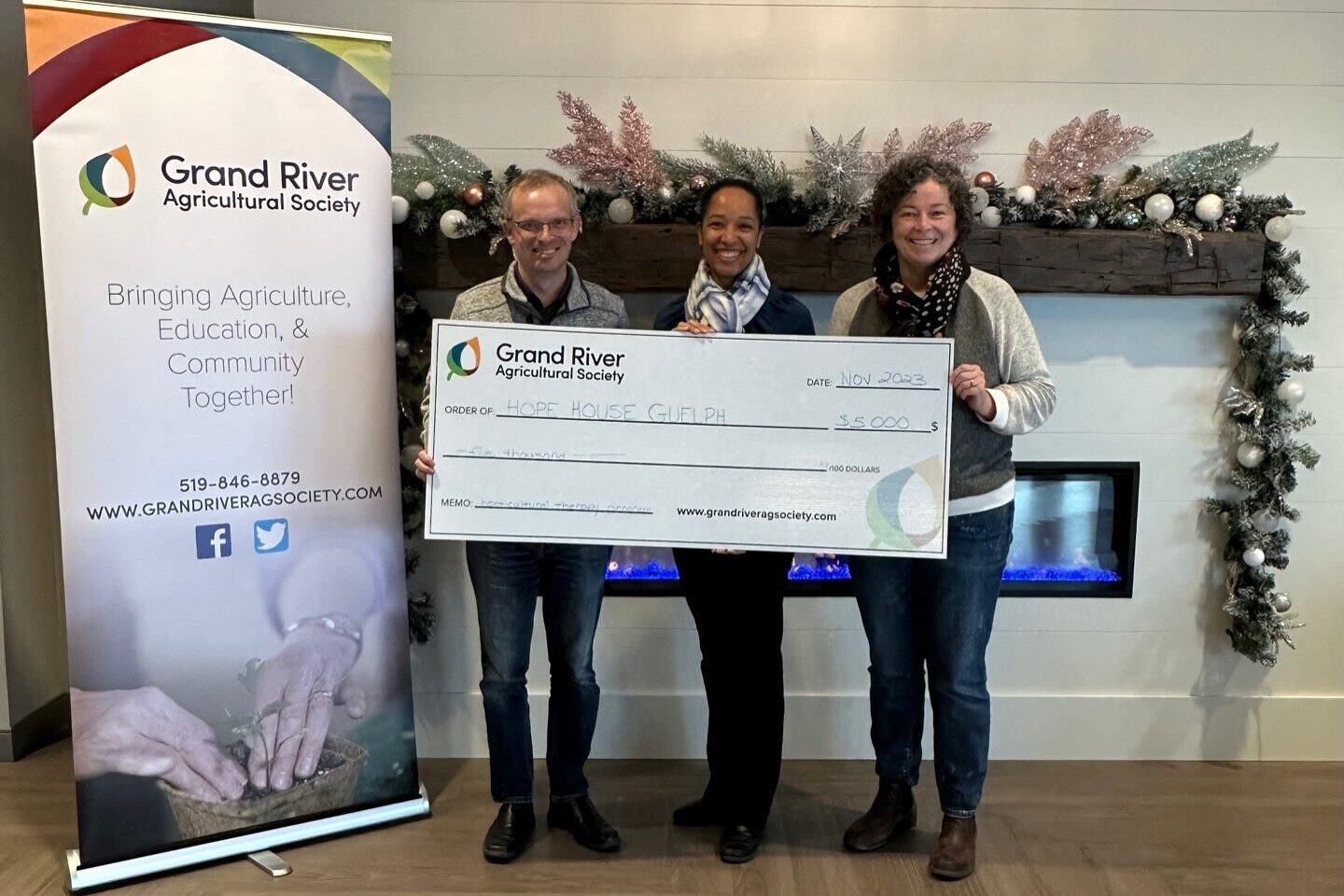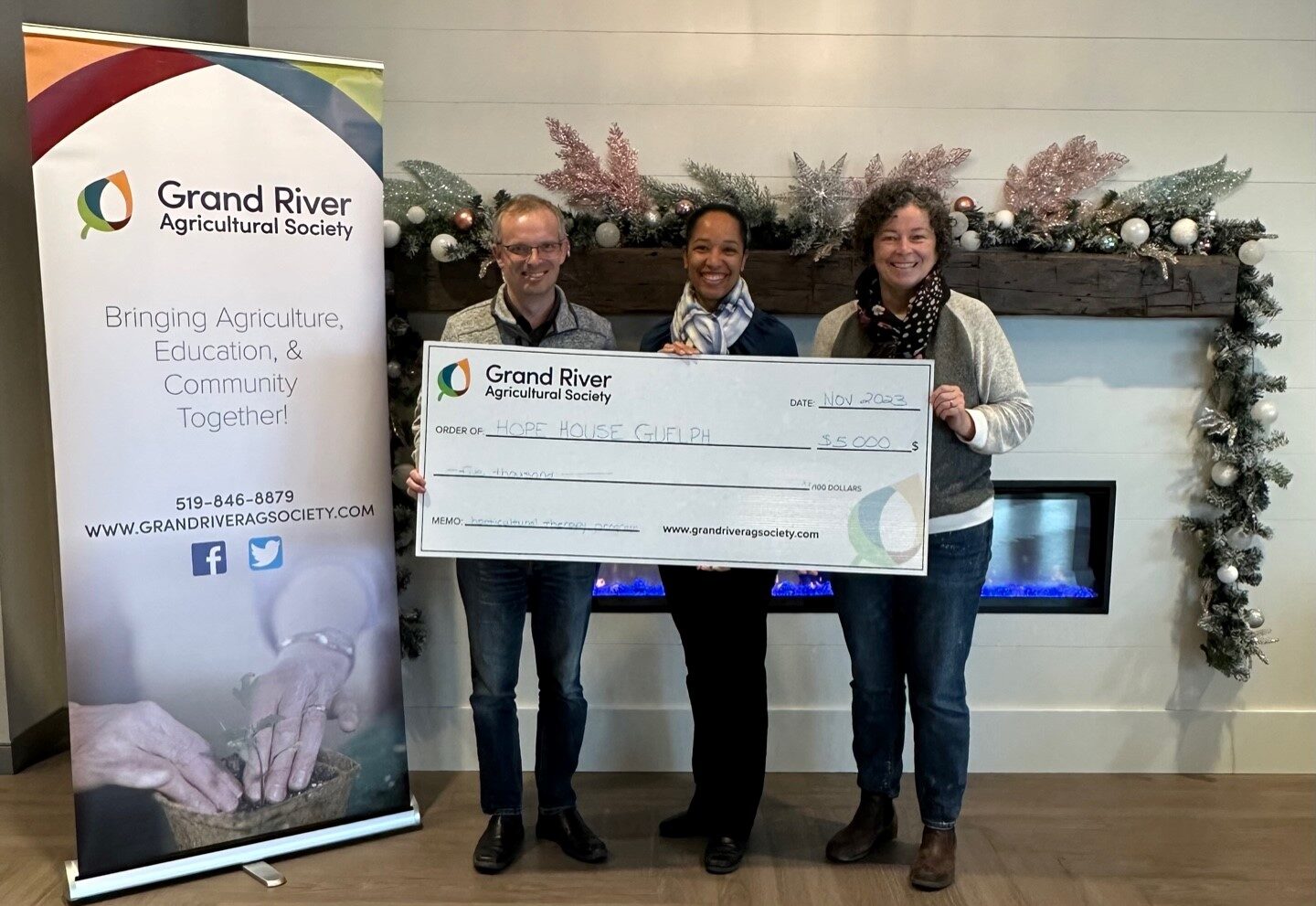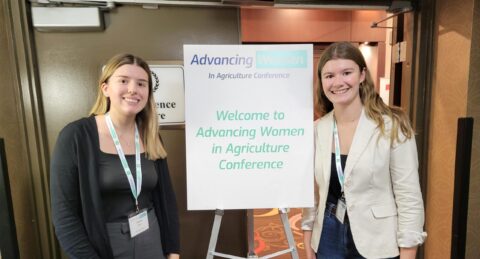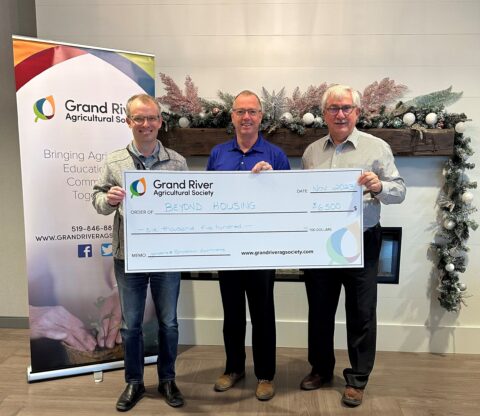GRAS supports Hope House with their mission to provide food security with a focus on mental health
Hope House Guelph provides tangible, compassionate assistance, and care to those in the Guelph Community through immediate relief and ongoing support with the goal of a greater level of independence. Hope House operates and advocates based on the core belief that poverty, food insecurity, inequality, health, and community are all interdependent issues that require comprehensive solutions, and by providing individualized services and programs, Hope House challenges the stigma associated with poverty and promotes long-term self-sufficiency. The goal is to equip visitors with the tools they need to empower them to be able to build a better life for themselves.
Since 2018, Hope House has been operating the North Field Food Farm at the Ignatius Jesuit Centre in North Guelph, where a transformative and holistic approach to addressing community needs is carried out.
This 8.6-acre piece of land plays a crucial role in providing fresh produce for Hope House’s food security programs, while also supporting the mental health and wellness needs of those in our community. The farm relies on the help of volunteers and community members who pitch in to plant, weed, and harvest the crops. Every year, the farm yields more than 15,000 lbs of fresh produce that goes towards supplying the Food Market, supporting food-skills programs, and distributing to other food security organizations in the Guelph community.
Produce from the farm also supports The Better Food Co – a social enterprise with a mission to improve the accessibility of healthy food while fostering community connections. By utilizing the farm’s produce, The Better Food Co. prepares meals for sale to the public and for free distribution through the food market. The proceeds are reinvested back into the farm, ensuring its sustained operation and growth.
The North Field Food Farm also embraces horticultural therapy as part of its offerings. The farm provides a therapeutic space where individuals can engage in farming activities as a form of therapy. People come to the farm to participate in tasks like planting and harvesting, which not only contribute to the production of fresh produce but also offer a sense of well-being through hands-on work and connection with nature.
The integrated approach of combining horticultural therapy with farm operations creates a practical and meaningful cycle. The therapeutic benefits experienced by participants directly support the farm’s productivity, which, in turn, feeds into food security programs. This integrated approach highlights how activities that promote mental well-being can have tangible positive outcomes for community needs.
In this way, Hope House pioneers a model that bridges the gaps between food security, mental well-being, sustainable agriculture, and community engagement, fostering a future where access to wholesome food and therapeutic experiences are truly shared resources.
Connecting agriculture, community, and people’s health is another important piece of the GRAS mandate and mission. GRAS values how all these facets are integrative and need to remain so to be successful in every community. We are committed to supporting projects benefiting agriculture and were so pleased to be able to support Hope House with a cheque for $5,000 for this project.

Pictured: Isaac Scott (GRAS VP, Finance), Jaya James (Hope House), and Cindy Lindsay (GRAS Board Director
Congratulations to Hope House for taking care in connecting people with the therapy of being in nature to improve their lives.
Written by: Louise Frost (Marketing Coordinator, GRAS) and Hope House




